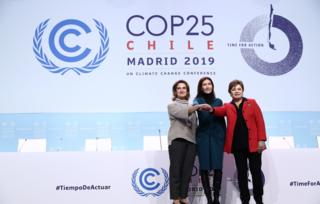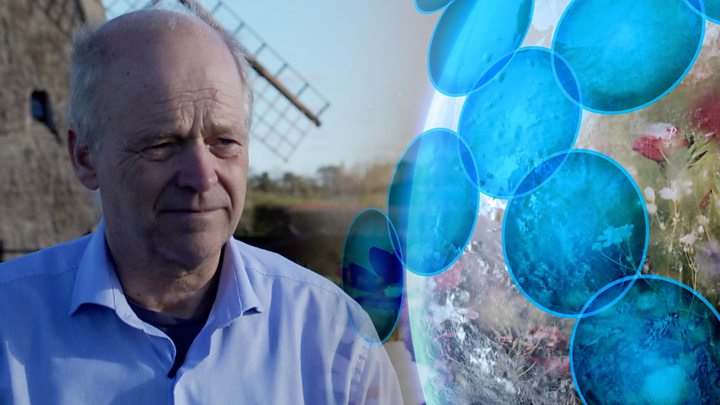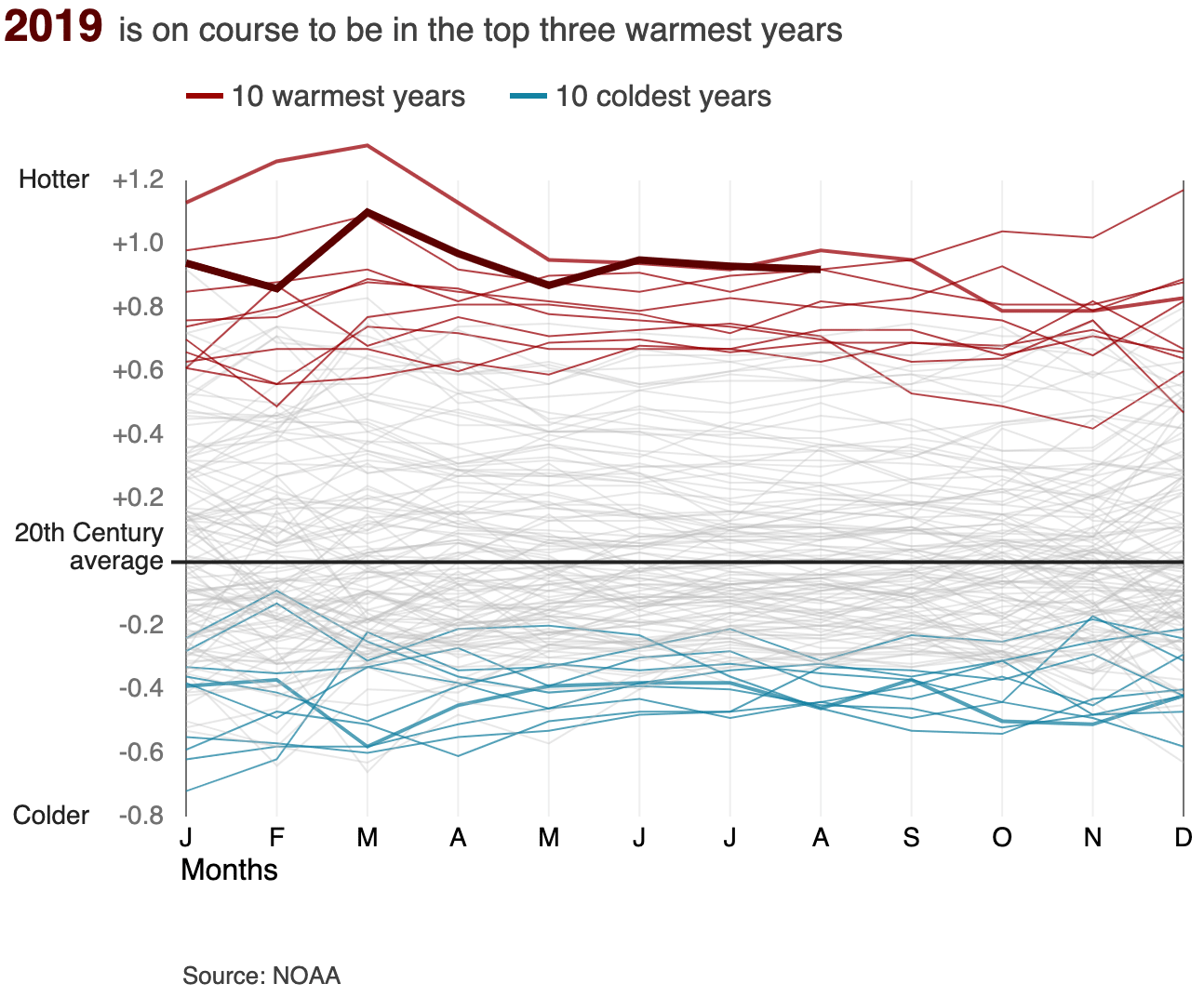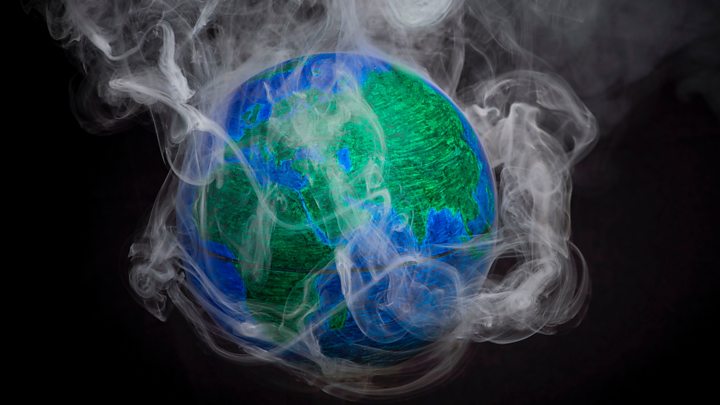 Image copyright
COP25
Image copyright
COP25
Political leaders and climate diplomats are meeting in Madrid for two weeks of talks amid a growing sense of crisis.
According to UN Secretary General António Guterres, "the point of no return is no longer over the horizon".
Meanwhile, Save the Children says that climate shocks have left millions in Africa facing hunger.
The charity says 33 million people are at emergency levels of food insecurity due to cyclones and droughts.
The world's average surface temperature is rising rapidly because human activities release greenhouse gases such as carbon dioxide (CO2). These gases trap heat in the atmosphere, much like the glass roof of a greenhouse.
This conference of the parties, or COP25, was due to be held in Chile but was cancelled by the government due to weeks of civil disturbances.
The meeting will aim to step up ambition so that all countries increase their national commitments to cut emissions. The meeting follows on the heels of three UN reports which stressed the increased urgency of limiting dangerous climate change.
Spain then stepped in to host the event, which will see 29,000 attendees over the two weeks of talks.
Speaking ahead of the meeting the UN secretary general said the climate crisis was imminent and political leaders had to respond.
"In the crucial 12 months ahead, it is essential that we secure more ambitious national commitments - particularly from the main emitters - to immediately start reducing greenhouse gas emissions at a pace consistent to reaching carbon neutrality by 2050.
"We simply have to stop digging and drilling and take advantage of the vast possibilities offered by renewable energy and nature-based solutions," Mr Guterres said.
Almost every country in the world has now signed and ratified the Paris climate agreement and under the terms of the pact they will all have to put new climate pledges on the table before the end of 2020.
Countdown to Glasgow
This meeting in Madrid signals the start of a frantic 12 months of negotiations that will culminate in Glasgow with COP26 in November next year.
Some 50 world leaders are expected to attend the meeting in the Spanish capital - but US President Donald Trump will not be among them.
The US became a signatory to the landmark Paris climate agreement in April 2016, under the Obama administration. But President Trump has said the accord - which has been signed by more than 190 countries - would lead to lost jobs and lower wages for American workers.
Last month, he began the process of withdrawing from the Paris deal, which was designed to mitigate the effects of climate change.
However, Speaker of the House of Representatives, Nancy Pelosi, will attend the conference with a congressional delegation.
Sorry, your browser cannot display this map
While her presence has been welcomed, US environmentalists want to see concrete steps on climate.
"While it's great Speaker Pelosi is coming to Madrid in place of Trump, symbolic gestures are no substitute for bold action," said Jean Su from the US Center for Biological Diversity.
"America remains the number one historic contributor to the climate emergency, and even Democratic politicians have never committed to taking responsibility for our fair share."

Media playback is unsupported on your device
Underlining the real world impacts of climate change, a report from the charity Save the Children, says that what it calls "climate shocks" are threatening tens of millions of people in East and Southern Africa.
The charity says that floods, landslides, drought and cyclones have put 33 million people at emergency levels of food insecurity. More than half of these are believed to be children.
The situation has been made worse because the two strongest cyclones ever to hit the African continent, affected the same region just weeks apart.
Cyclone Idai struck Mozambique, Zimbabwe and Malawi last March, while six weeks later Cyclone Kenneth slammed Mozambique with millions affected by flooding.
"The climate crisis is happening here, and it's killing people, forcing them from their homes and ruining children's chance of a future," said Ian Vale from Save the Children.
"These unrelenting emergencies are stretching the humanitarian system to breaking point. Repeated cycles of food insecurity from climate-related shocks is resulting in big gaps in funding and unmet humanitarian needs. We are reaching a crisis point in this region."

The UN Secretary General António Guterres will tell the meeting that the world is now facing a full-blown climate emergency.

Media playback is unsupported on your device
He will urge countries to significantly increase their carbon cutting ambitions. Subsidies for fossil fuel extraction must end, he said, and no new coal-fired power stations must be built after 2020.
Follow Matt on Twitter.
